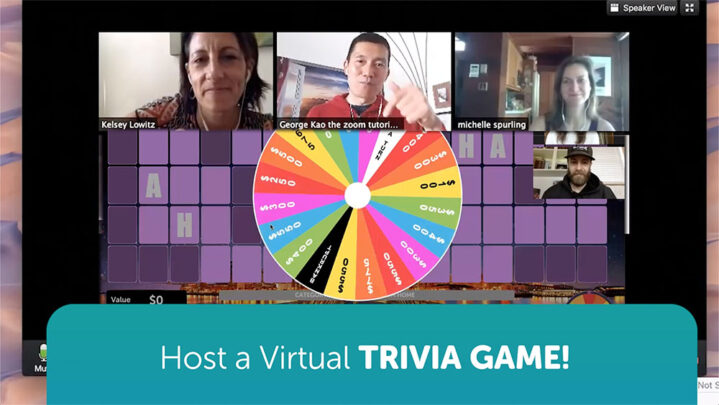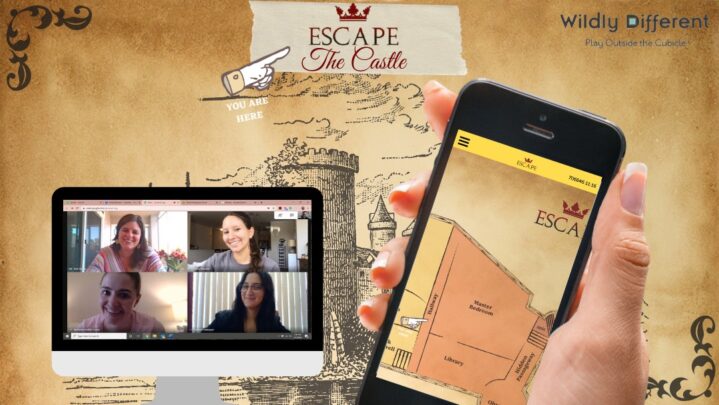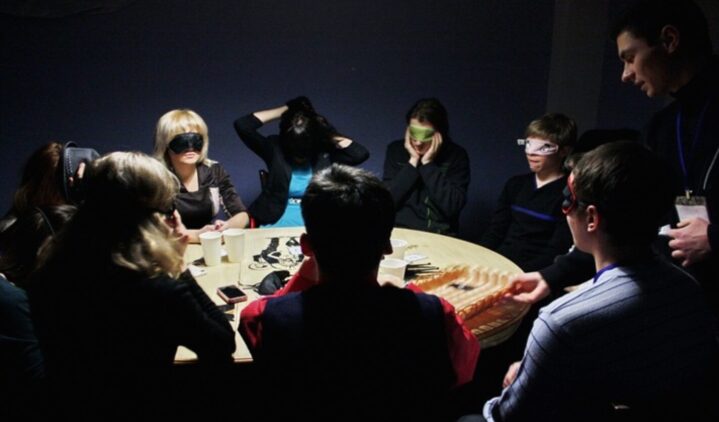Working remotely has changed the way teams connect. The casual chats over coffee, quick laughs at a colleague’s desk, or spontaneous group outings are much harder to recreate when everyone is sitting behind a screen in different cities or even time zones. That’s where online games come in.
They give people a shared activity that’s fun, low-stress, and often surprisingly good at building stronger relationships. Instead of relying only on work-related calls, managers can use games to reintroduce lightheartedness and camaraderie into the day.
The best part? Online games don’t have to be complicated or take hours to play. Some can be quick five-minute icebreakers before a meeting, while others can serve as a dedicated hour-long team-building activity. With the right balance, you’ll find people more energized, open to collaboration, and more connected to one another.
1. Trivia and Quiz Rounds

Trivia games remain one of the most effective ways to get everyone involved at once. Online platforms like Kahoot!, QuizBreaker, or even a simple shared presentation with questions allow you to set up themed rounds. The themes can be broad, such as history, sports, or pop culture, or more personal, such as facts about the company or inside jokes from team projects.
What makes trivia so effective is its inclusivity. You don’t need any special skills to participate, and people often learn something new during the process. It also tends to spark conversations long after the game ends:“I can’t believe you knew that answer!” or “I never thought you were such a movie expert!” These moments bring warmth into team interactions.
For onboarding new hires, trivia is particularly powerful. It’s an easy way to integrate them into the group without making them feel like they are under pressure. Instead, the focus shifts to shared fun.
2. Strategy Games Like Codenames Online
Not all teams want short bursts of fun; some prefer games that stretch the brain and reward creative thinking. Codenames Online is an excellent example. Players work in teams, giving and interpreting one-word clues to guess the correct words on the board. The thrill comes from balancing clarity and subtlety, which requires communication and trust.
Another favorite is Skribbl.io, where teammates draw and guess each other’s prompts. It mixes strategy, communication, and humor all at once.
Interestingly, the appeal of strategy games often mirrors the excitement people feel in activities like online cricket betting; it’s about analyzing options, weighing risks, and predicting outcomes in real time. While your team might not be placing bets, the mental engagement is strikingly similar. It keeps people focused, invested, and motivated to play their best.
These kinds of games are ideal when you want to go beyond casual chatter and build sharper problem-solving skills within the group.
3. Virtual Escape Rooms

Escape rooms have exploded in popularity over the last decade, and their digital versions are just as thrilling. Platforms such as The Escape Game Remote Adventures or Enchambered offer online puzzles where teams must solve riddles, search for clues, and crack codes to “escape” before the timer runs out.
What makes virtual escape rooms stand out is the balance of fun and teamwork. No single person can solve everything, so collaboration is essential. One player might notice a small clue while another interprets its meaning. The shared challenge naturally strengthens bonds, and the time limit keeps the energy high.
Sessions usually last between 45 minutes and an hour, which makes them perfect for structured team-building days. Beyond the entertainment, these games also sharpen skills your team already uses in daily communication, delegation, and creative problem-solving. The adrenaline rush at the end when you finally solve the last puzzle together is a reward in itself.
4. Quick Icebreaker Games
Sometimes the goal isn’t to spend an hour playing, but simply to break the ice before diving into a long meeting. That’s where quick, five-minute games shine. Classic icebreakers translate seamlessly into virtual calls:
- Two Truths and a Lie, where each person reveals three “facts” about themselves, and the group guesses the false one.
- Would You Rather?, which throws fun dilemmas into the chat and invites debate.
- Emoji Storytelling, where teammates share a mini-story made only of emojis, and others decode it.
These games don’t require any tools or setup, just creativity and a bit of humor. They’re especially useful when the group feels quiet or tired, as they re-energize everyone without consuming much time. Managers often use them at the start of team calls to help people relax and engage more fully with the upcoming agenda.
5. Drawing Games Like Gartic Phone
Few activities generate as much laughter as drawing games. Platforms like Gartic Phone or Drawasaurus ask players to sketch prompts, which others then guess. Because artistic ability varies widely, the results are often hilariously off-base, which adds to the fun.
These games work particularly well for cross-departmental teams. A finance analyst might not usually interact with a designer on a personal level, but when both are trying to sketch a clumsy giraffe, hierarchy disappears, and the connection becomes playful.
Drawing games also highlight creativity in unexpected ways. People often surprise their colleagues with clever or funny interpretations of prompts. The end result is usually laughter, screenshots of the funniest sketches, and a relaxed team atmosphere.
6. Word Games for Communication

Word games are perfect for sharpening quick thinking and communication skills while keeping things light. Scattergories Online challenges players to come up with unique answers within a category, all starting with the same letter. It forces people to think creatively under time pressure, often leading to ridiculous but hilarious answers.
Another option is Words With Friends, which is turn-based and asynchronous. This makes it ideal for global teams where time zones clash, since players don’t have to be online at the same time. Instead, the game unfolds over several days, keeping engagement alive without adding scheduling stress.
These games are excellent for ongoing interaction. They give people something fun to return to between meetings, keeping a sense of playfulness woven into the work week.
7. Digital Board Game Classics
Board games have stood the test of time, and their digital versions are just as engaging. Catan Universe encourages trade and negotiation, Ticket to Ride Online combines planning with accessible gameplay, and Monopoly Online taps into nostalgia with its mix of luck and strategy.
For remote teams, these games offer more than fun; they provide a familiar structure that’s easy for anyone to pick up. Many employees grew up with these titles, which lowers the barrier to entry and sparks instant engagement.
Board game sessions are best reserved for planned team-building events since they usually run longer than casual games. They create a shared memory that teammates will bring up later: “Remember when you blocked me in Catan?” That kind of recall strengthens long-term bonds.
8. Role-Playing Games Like Mafia

Role-playing games (RPGs) such as Mafia or Werewolf put players into characters with hidden roles. The objective is simple: figure out who’s who through conversation, bluffing, and deduction. The magic lies in the storytelling and persuasion, as colleagues argue their cases and try to read each other’s intentions.
These games allow quieter employees to shine. Someone who rarely speaks in meetings may take on a bold role and surprise their colleagues. It also encourages creativity, as players invent narratives and think on their feet.
The combination of humor, tension, and social deduction makes role-playing games highly engaging. They’re best for teams that already know each other moderately well, as the debates and accusations can be more entertaining once people are comfortable together.
9. Asynchronous Guessing Games
For globally distributed teams, synchronous play isn’t always possible. Asynchronous games solve this problem by allowing players to take turns when convenient.
GeoGuessr is a great example: it drops players into random Google Street View locations, and they must guess where they are. Teammates can compare guesses later, creating ongoing fun.
Turn-based word games and puzzle apps also fit this model. They’re less about real-time bonding and more about maintaining a steady trickle of playful interaction across time zones. Over the course of a week, the game becomes an ongoing conversation thread that complements work tasks.
Asynchronous games are excellent for teams that want to stay connected casually without extra scheduling.
10. Casual Minute-to-Win-It Challenges
Sometimes the simplest games are the most effective. Casual mini challenges like “find an object in your house that starts with the letter T” or “build the tallest tower from random household items” are quick, silly, and energizing.
These challenges don’t require platforms or tools, just creativity and participation. Because they involve real-world objects, they often create funny stories and unexpected glimpses into colleagues’ lives. A manager balancing mugs on a chair or an engineer showing off a bizarre household gadget quickly breaks down formal barriers.
They’re especially good for energizing tired groups or ending a week on a high note.
Final Thoughts
Games might seem trivial compared to deadlines and meetings, but they’re essential for a remote culture. They recreate the human moments missing from digital-only work, making people feel like part of a real team rather than just a name on a screen.
The best approach is variety: use quick icebreakers to start meetings, schedule longer escape rooms or board games occasionally, and keep asynchronous options running in the background. Over time, these activities turn into stories, inside jokes, and a stronger sense of belonging.
